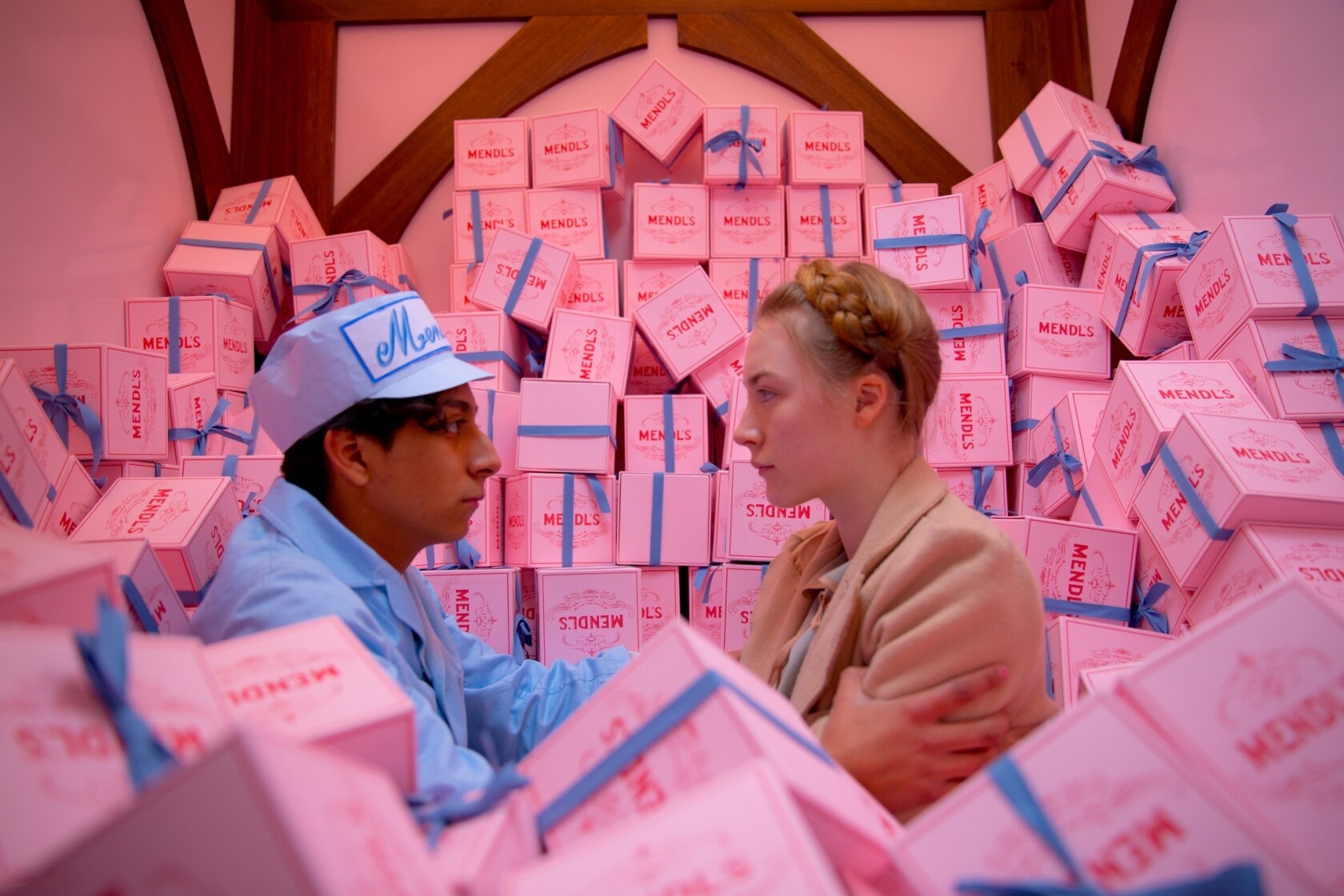 |
“Don’t flirt with her.”
|
To those unfamiliar or uncomfortable with Wes Anderson’s filmmaking style, The Grand Budapest Hotel’s wacky vibe might throw you off. From the very beginning, you’re plummeted into a world that could only exist in the mind of a stylistic creative type, and it’s not exactly jarring…it just takes some getting used to.
The plot? Hard to explain. The production design? Difficult to do justice. There’s a lot held within the film’s surprisingly short 100-minute runtime, including a story-within-a-story-within-a-story set-up that on the surface seem purposeless and trivial, but actually contains immense depth (as Wes Anderson stories typically do). If you think about this film for a while, you might come to a conclusion that the story is about nostalgia and the significance of the past (hence the deeply layered storytelling), and the effects of the stylistic past on the present.
Deep analyses aside, the meat of the film is taken in full force by a subtly powerful Ralph Fiennes performance. Fiennes plays Monsieur Gustave H., the concierge of the hotel, a(n understandably) quirky character, yet one of great depth; Gustave’s relationship with new lobby boy Zero Moustafa (breakout star Tony Revolori) is put front and center, and it’s absolutely delightful to see the two act opposite each other; but are incredibly talented, and their performances are sharply nuanced. I’m tempted to rewatch the film if only for these two; they’re certainly the film’s standout.
 Elsewhere in the cast are Anderson regulars Bill Murray, Owen Wilson, Edward Norton, Jason Schwartzman, Willem Dafoe and others, some hidden under makeup and mustaches. There are cameos aplenty, including a missable Tilda Swinton as an aged-up guest of the hotel. Some are funny, some serious; the cast is a mixed bag of emotions and tones, but the film is inarguably filled with fascinatingly droll performances, even for a Wes Anderson film.
Elsewhere in the cast are Anderson regulars Bill Murray, Owen Wilson, Edward Norton, Jason Schwartzman, Willem Dafoe and others, some hidden under makeup and mustaches. There are cameos aplenty, including a missable Tilda Swinton as an aged-up guest of the hotel. Some are funny, some serious; the cast is a mixed bag of emotions and tones, but the film is inarguably filled with fascinatingly droll performances, even for a Wes Anderson film.Director: Wes Anderson
Writers: Wes Anderson and Hugo Guinness
Starring: Ralph Fiennes, Tony Revolori, Adrien Brody, Willem Dafoe, Saoirse Ronan
Rated: R for language, some sexual content and violence
Available: On Demand
Available: On Demand
Fun Fact: In addition to being one of the rare movies to have actual stories which are connected with the newspaper headline seen on screen, the newspapers shown near the start of this movie reveal much of the plot and ending.

No comments:
Post a Comment